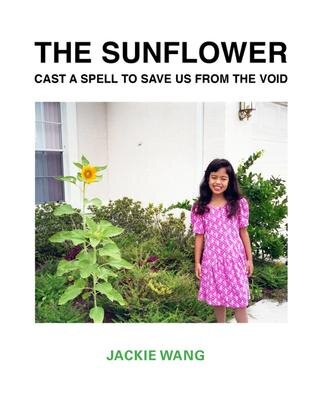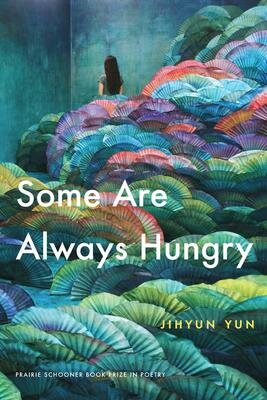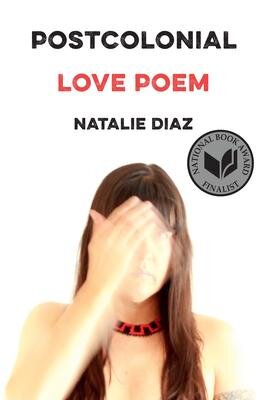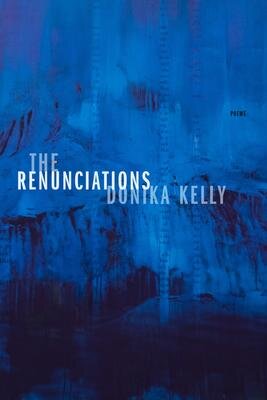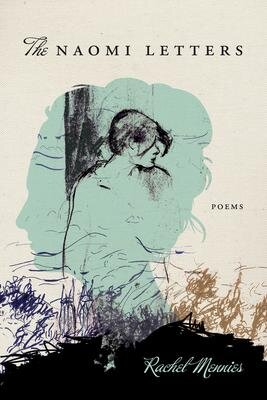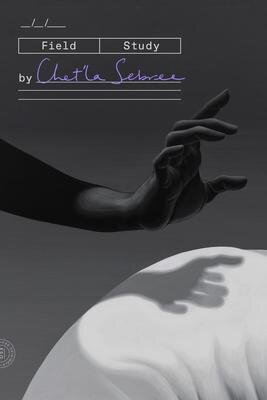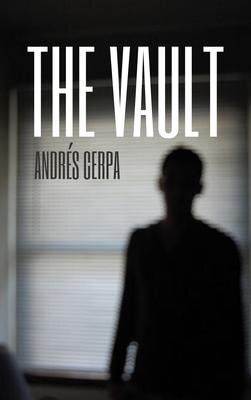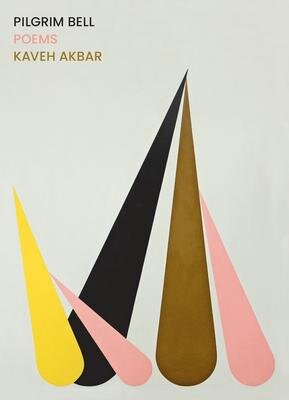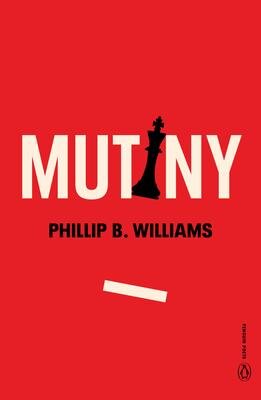Recommended Reading: 27 Debut & Sophomore Poetry Collections
To close out National Poetry Month, I’ve shared some notable debut and sophomore poetry collections to come out in 2021 and 2020. Hope you enjoy!
Written by Serena Morales
Debuts:
Arrow by Sumita Chakraborty
This collection is nothing short of monumental. Here, you have the product of a truly remarkable mind and a pristine, searching imagination. Chakraborty takes the horrors of the world, and with great alchemy, profound generosity, and unimaginable grace, distills them into something like love, like wonder, like beauty. A kaleidoscopic book of impossible dualities, it’s both: parabolic and personal, epic and microscopic, historical and prophetic, celestial and terrestrial.
Inheritance by Taylor Johnson
A rigorous, prismatic collection that rewards the reader with the gifts of the poet’s deep attention to landscape, language, and bodies. These poems are invested in the act of witnessing, in how witness intersects with wildness, and where we might find, and transcribe, the music in all of this. By turns noetic, mystical, and erotic—I’m thinking, here, of Lorde’s version of erotic, though they are also interested in pleasure and desire—these poems reach for, and touch, what is most sacred in us, refusing falsity as they honor ferality: “No, I’d like to be as animal as language.”
The Sunflower Cast a Spell to Save Us From the Void by Jackie Wang
I so loved and needed this weird lil electric collection from the mind that gave us the essential Carceral Capitalism. These prose-poems rose to me like buckets from the dark, bountiful well of dreams: dream-image, dream-logic, dream-consciousness… Here the brainy & revolutionary spirit of Fred Moten meets the biting irony of Jenny Zhang and the rigorous searching & excavation of Bhanu Kapil (who, aptly, praised the book!). The result is something wholly original that radically embraces the potential for poetry to alter and expand social imaginations. While these poems may be rooted in the dirt of our collective traumas, our interpersonal harms—carceral, capitalist, colonial, and otherwise—they reach towards light with liberatory fervor.
Fantasia for the Man in Blue by Tommye Blount
How does police brutality relate to queer appetities & intimacies? In Fantasia for the Man in Blue, Blount courageously confronts this question, spotlighting the cruel proximity with which violence and desire dance. Like a sculptor or a chemist, he pares down his materials into their most beautiful, provocatively naked forms. Often erotic, with an elegeic undercurrent or, at times, ekphrastic artistry, these are lyrics of revelation, insisting: “I have been here all along / revising your violent strokes against me / as love.”
Wound from the Mouth of a Wound by torrin a. greathouse
These poems are like the sharp, bright rays that pierce through on a stormy day: illuminating, unsparing, & viciously beautiful. Tenderness lies beside violence here, and both are woven into the same song of survival, as stitched ever so carefully, and so lyrically by self-proclaimed “transgender cripple-punk,” torrin a. greathouse. Dealing with topics surrounding gender & sexuality, disability & illness, family & trauma, this collection calls forth and names ghostly wounds, and in doing so, expunges them. A compelling, enduring debut.
The Wild Fox of Yemen by Threa Almontaser
When a table of contents gets you excited then you know the collection’s got to be good! Winner of the Walt Whitman Award, this firecracker debut depicts all the specific textures of life as a young Yemeni woman in America, declaring “I sing two anthems / hold a moshed lineage / in every boxed foyer.” These poems growl and buck as they navigate girlhood, language, imperialism, and belonging. In a few words: defiant, experimental, and evocative!
The Perseverance by Raymond Antrobus
Innovative, insightful, and wide-ranging, this collection uses a variety of poetic tools to examine the rich complexities of the poet’s experience as a deaf British Jamaican man. Autobiographical explorations of masculinity, heritage, and language, exist alongside deft interrogations around grief & illness. The poems are notably referential, and Antrobus has garnered comparisons to American poets Ilya Kaminsky, Danez Smith, & José Olivarez, to which I’d add Nate Marshall, Shira Erlichman, and Cortney Lamar Charleston.
What Noise Against the Cane by Desiree C. Bailey
Beginning with the Haitian revolution and carrying that revolutionary spirit throughout the rest of the collection, these poems soar across nations, across modalities, and across temporalities too. Epic, fluid, and dynamic, the collection draws from Caribbean folk tradition to explore themes of fugitivity & movement, in particular as they relate to Black womanhood and Black diaspora. As much salt as it is water, What Noise Against the Cane stings, soothes, reflects & records.
Thrown in the Throat by Benjamin Garcia
An audacious, deliciously transgressive debut collection that explores queerness, gender, nature, and the immigrant family experience. Though trauma is maneuvered here, these poems maintain an unapologetic fidelity to pleasure, sexual and otherwise, and levity is sustained through language. Confessional without compulsory redemption, these wild, well-crafted poems ask: “Is it not amazing that we are still alive?”
The Life Assignment by Ricardo Alberto Maldonado
In this bilingual collection, Maldonado laments late capitalism while also defying it by making love his industry, his language, and his “life assignment,” declaring “I loved. I loved. I love presently.” This is queer love but also love of his nation, Puerto Rico, a homeland whose presence is felt throughout the collection. Though these poems hold space for the melancholy, rage, and exhaustion that accompany unending economic exploitation, the lyrics remain rebellious of Empire, and the body is reclaimed (from labor alone) as “substance riotous with living.”
Worldly Things by Michael Kleber-Diggs
An apt title for a remarkable book that says, in so many ways, “this is what I’ve witnessed; / I want you to notice it, too.” With tenderness, Kleber-Diggs catalogs life’s ordinary events: watering his neighbor’s garden, making oatmeal before dawn, and discussing dreams with his teenage daughter as she learns to drive. But besides these tender moments are moments of profound loss: a child is lost to miscarriage, a father to gun violence, and another father, and another. These, too, have become ordinary events in this country, and in confronting them, Kleber-Diggs attempts to “hew hope from a mountain of despair,” offering the world this plea: “Let me bloom...let me be lovely.” A truly moving, and very midwestern, collection.
Un-American by Hafizah Geter
In precise, sparse but unsparing lyrics, Geter navigates the intricacies of her lived and inherited experiences as the daughter of a Nigerian Muslim woman & Southern Baptist Black man. With poignant testimonies, prayer, and parable, Geter explores ailments that are both physical and social, allegiances that are both familial and national, and violences of various enterprises. This is really one of those rare, special collections that can be taught in a classroom, found on the shelves of established poets, and also be given to someone who is typically poetry-averse or avoidant. Though it can be read in one sitting, this is a book that requires careful revisitation.
Some Are Always Hungry by Jihyun Yun
Mythic, propulsive, and ever so sensual. This book is about survival and all the ways we nurture and sustain ourselves. A lacerating, lyrically-exquisite collection that sings down to the syllable. Yum, yum, yum—more please!
Sophomores:
Postcolonial Love Poem by Natalie Diaz, The Renunciations by Donika Kelly, & The Naomi Letters by Rachel Mennies
Fellow wlw’s pay attention! If you adore a queer love poem then you might want to consider grabbing these as a trilogy because some of the best ones—oh so tender!—I’ve read are contained in these collections.
But a word on each, in case you prefer to buy separately—
Diaz’s collection locates pleasure and queer desire as a site of endless decolonizing possiblities, it’s sensual and cerebral and uncompromising!
CW: SA | The Renunciations deals extensively with childhood trauma and abuse, but one feels held throughout the horror, as each line is wrought with such exquisite, attentive care. Harrowing and affirming.
Mennies’ collection offers a series of short, sweet, epistolary love poems all written to a woman named Naomi over the course of a year. The letters deal with longing, intimacy, nostalgia, mental illness, and Judaism.
Guillotine by Eduardo C. Corral
In Guillotine, Corral explores the relationship between desirability and migration, skillfully connecting the shame, longing, and grief tied to queer identity—specifically for those who endured through the AIDS crisis—with that of undocumented immigrants, who know the Sonoran Desert intimately, as one might know a lover. Employing personae and startling lyricism, this many-voiced collection places us, viscerally, in the body of the borderlands and those who travail it. At once deeply haunted and fully alive, these referential, soul-stirring poems will awaken inside you that which need no longer be dormant. Let it.
Cardinal by Tyree Daye
Daye’s big-hearted Cardinal probes and lilts in its questioning around whose movements are free in this country, and whose are not. While the true center of the collection is the poet’s home region of northeastern North Carolina, the poems travel to various cities, coastal and midwestern, though always maintaining a particular soft spot for the Small-Town South. A ruminative, defiant collection that honors lineages while resisting confinement, declaring: “I still watch / what I sing, but I sing.”
Owed by Joshua Bennett
Here, Whiting award-winner, Joshua Bennet, troubles the throughlines between ownership, reparation, and commemoration. This probing collection illuminates all that requires (revisited) visibility to achieve restoration, or when appropriate, abolition—the former often corresponding to interpersonal matters, and the latter to structural. I think fans of Clint Smith and John Murillo will enjoy this one!
You Don’t Have to go to Mars for Love by Yona Harvey
I adored Harvey’s debut, Hemming the Water, so I was highly anticipating this follow-up to it! In this new, highly imaginative feat of lyricism, Harvey vision-maps an Afro-futuristic journey that is both anchored-in and in-chorus with the experiences of Black women. Written with a sensibility that merges Southern and speculative poetics, the poems go from pastoral to interstellar, and Harvey makes it work by employing her vast repertoire of craft techniques. To quote a line from the title poem: “She was not afraid. of breaking things. & that was key.”
Imagine Us, The Swarm by Muriel Leung
This smart, searching collection features seven texts that can be described as poems, or essays-in-verse, or typographical experiments. Many artists and scholars, such as bell hooks and Leah Lakshmi Piepzna-Samarasinha, are referenced as Leung positions herself in the ever-expanding canon of socially responsible poetics. As the speakers attempt to carve meaning from grief, imagining what life after loss, labor, and intergenerational trauma can look like, they invite us to “write our origins / sacred here and renounce the country of our fear.” I’m reminded of poets Dao Strom, Diana Khoi Nguyen, Vanessa Angélica Villarreal, and Victoria Chang.
Tertulia by Vincent Toro
True to the Nuyorican poetic tradition from which Toro comes, this dynamic, musical collection comes alive on the page, as you might suspect from its title. Tertulia refers to a Latin American social gathering in which attendees engage in discourse around cultural, political, and artistic topics. The collection—which is told in five acts, lending to its overall sense of grandeur—examines and denounces the conditions that plague the Latinx diasporic community, including colonialism and immigration, as well as economic and racial disparity. A complex, unrelenting, and ambitious work that will both delight readers with its linguistic acrobatics, and challenge them with its sharp sociopolitical commentary.
If This Is The Age We End Discovery by Rosebud Ben-Oni
I love when poets write about science! There’s a real alchemy to this collection, and to me this highlights what makes the merger of science and poetry so special; boundless possibilities emerge when the poet places wonder at the center of their artistic (or galactic or theoretical) inquiries. And though these inquiries, naturally, wane existential, there’s a real playfulness here, often revealing itself syntactically. It’s as if these poems were messages transmitted from the cosmos herself. This is a fascinating, electromagnetic collection of imagination, transformation, and connection.
And a few forthcoming titles I’m highly anticipating!:
Field Study by Chet’la Sebree (June 1), The Vault by Andrés Cerpa (June 15), Pilgrim Bell by Kaveh Akbar (August 3), & Mutiny by Phillip B. Williams (September 21)





